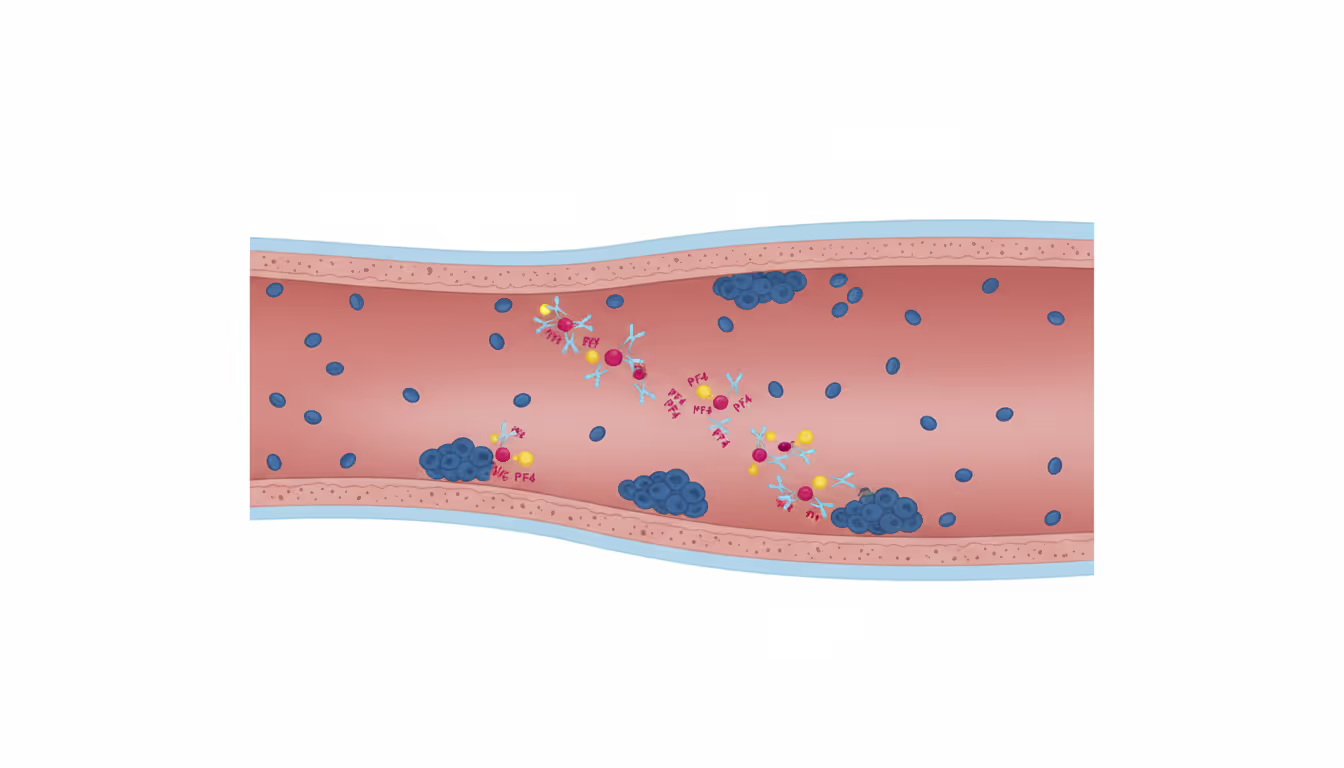
Heparin-induced thrombocytopenia (HIT) occurs when the body's immune system creates antibodies against heparin, particularly when it binds with a blood protein called platelet factor 4 (PF4). These antibodies latch onto the heparin-PF4 complex, activating platelets, which then aggregate and form small clots in the bloodstream, leading to a drop in platelet count. If larger clots develop and obstruct blood vessels, the condition becomes more severe and is known as heparin-induced thrombocytopenia with thrombosis (HITT). Heparin is typically used to treat and prevent abnormal clotting, but in cases of HIT or HITT, alternative medications must be employed. Direct thrombin inhibitors, which prevent blood clotting, are potential alternatives, and an oral version is being tested for HIT treatment. Administering the common oral anticoagulant, warfarin (Coumadin), to HIT patients with platelet counts below 150,000 is dangerous, as it can result in warfarin-induced skin necrosis. The severity of HIT can range from mild to life-threatening.




